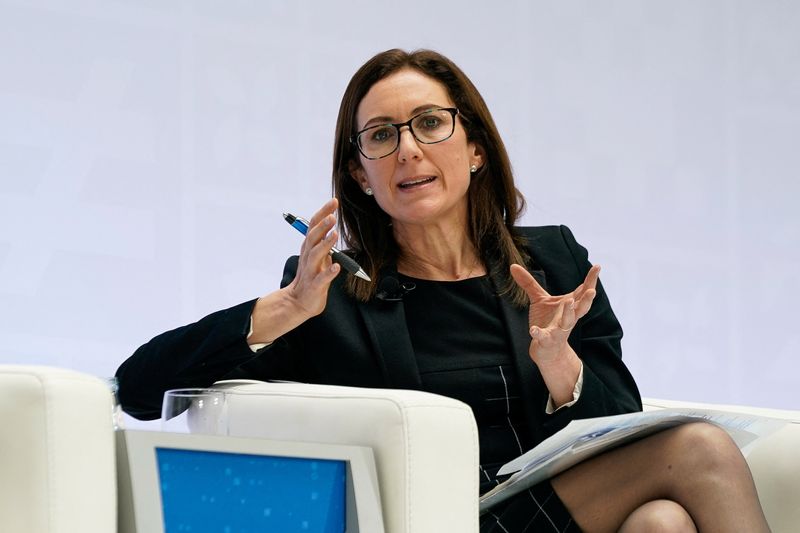By David Milliken
LONDON (Reuters) -The Bank of England has no need to raise interest rates further to curb inflation, and risks having to make a sharp U-turn if it tightens policy any more, BoE rate-setter Silvana Tenreyro said in her last speech as an official at the central bank.
Tenreyro has opposed raising interest rates since December, and voted against the BoE's rate rise last week, which was her final meeting as an external member of the Monetary Policy Committee after two three-year terms.
"Overall, I ... judged that the tightening already in the pipeline would be sufficient to bring inflation back to, and most likely below, the target," Tenreyro said in a speech hosted by the Society of Professional Economists and the Resolution Foundation think tank on Thursday.
Tenreyro said "very little" of the future pain from the BoE's recent rate rises had shown up yet in economic data, and the central bank was likely to find it had over-tightened.
"I would expect loosening will be needed to meet the inflation target. And the more we raise rates now, the earlier and faster we will need eventually to cut rates," she said.
By contrast, on Wednesday BoE Governor Andrew Bailey cast doubt on expectations among some investors that the BoE might have to start cutting rates less than a year from now.
Last month the BoE forecast inflation would drop to just over 5% by the end of this year and below its 2% target by early 2025, but some BoE policymakers have doubts about the models used to make these forecasts and fear inflation will be higher.
Bailey said last week the central bank had needed to raise interest rates by half a percentage point to 5% because of signs that inflation was proving stickier than expected, after unexpectedly strong wage and inflation data.
Tenreyro said this data could imply "a slightly slower decline in domestic inflationary pressures", but was outweighed by a sharp tightening in financial conditions, as market interest rates had soared in recent weeks.
"The disinflationary impact of this would be more than sufficient to offset the recent data news, even in the unlikely event that all of that (inflation) news proved to be persistent," she said.
"Forward-looking indicators had pointed towards falls in both pay growth and core-goods inflation over the rest of the year," she added.
British inflation surged last year to a 41-year high of 11.1%, after Russia's invasion of Ukraine caused a surge in European natural gas prices.

Tenreyro said recent declines in energy and commodity prices would put this process into reverse, and that by the end of this year British inflation would be on a similar downward trend to the United States and the euro zone.
"This unwind will take a bit longer in the UK, but eventually we will see this shock unwinding from the cost base of companies," she said.